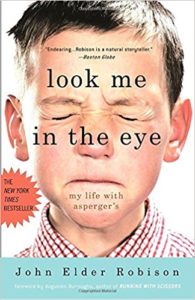Learning to be an Introverted Entrepreneur
Throughout my life I have been labeled as different. Not normal. Weird. Strange.
Authority figures and adults would say I’m shy and that someday I would open up and come out of my shell.
It wasn’t until I was in my 30’s that I fully understood what was “wrong” with me. It took decades of my life to understand why I think the way I do.
I finally figured out that I’m Left of Normal.

What is Left of Normal?
Back in April, 2020 I wrote a blog about how extroverts can suck it during social distancing. To get a full grasp on how my life is, head over there to learn about life as an introvert.
But over the decades I have learned more than the fact that I’m an introvert (I’m not coming out of my shell, I like it in here).
I’ve also learned a lot about how my brain works; how I’m not like you.
In 1994 Asperger’s Syndrome was officially labeled as a diagnosis. But, where does Asperger’s end and where does Autism start? Because there aren’t clear points, since 2013 diagnoses have changed to Autism Spectrum Disorder, or ASD.
Thinking of a spectrum, you likely imagine a linear progression. On the far left, you have severe Autism expressed with physical symptoms like swaying, humming, no verbal communication, extreme routines that must be adhered.
On the opposite end of the spectrum, you have those people who are highly social, but struggle with picking up on social cues. They don’t know when to shut up, they can’t tell if you’re angry, and they often describe themselves as “I’m a people person!”
In the middle, however, is what I define as normal. Not overly outgoing, but personable. Not too excited, but excited enough. Enjoy gatherings, but also like the peace and quiet sometimes. Basically a good mixture of both extremes.

I describe myself as a bit Left of Normal.
How being Left of Normal Shaped my Life
In many cases as you move to the left, intelligence goes up. The trade-off is that social intelligence can go down. While I’m able to figure out a lot based on logic, I have to constantly be assessing the situation in order to know if I’m “doing it right.” A few examples.

Eye contact. I hate it, it’s uncomfortable, it’s weird, and it’s largely unnecessary. But I get the importance, and I understand why other people want to maintain it. During conversations, I try to have whatever I can to take the contact off my eyes (charts, graphs, visuals, whatever). When that’s not possible, going through a conversation and maintaining “socially acceptable levels of eye contact” is like driving a car uphill, fully loaded, into the wind. Possible, but I’ll run out of gas a whole lot sooner.
Empathy. I feel empathy. I understand emotions. I rarely know how to express those things in words that I feel come across as genuine. For “normals” the words just come out without having to think about it. I have to dig deep into memory of similar experiences in the past, and grab onto to empathetic words others have used in that situation. Otherwise, when someone says, “My dad died.” I would end up responding, “huh, that sucks.”
Social interaction. There is a right way and a wrong way to go through social interactions. Lately, I have to do networking events as the majority of my interactions. Testing various methods of interactions for many years, I can largely “fake it” in the acceptable manner. I logically know how to interact, but it doesn’t come natural. Again, running out of gas sooner.
Day to day life. If you have ever been in a play, you know how this feels on a micro level. There’s a script, you study what other people say to get cues for what you say. You go through the motions, practice, tweak your actions, and hope you don’t miss a line. Every day, for me, is a performance. But there are no set lines, no director to give feedback, and no rehearsals. I must go through every possible situation to predetermine how I act and react, so that I’m not caught off guard and left wondering what I’m supposed to do.
I fully believe life is easier for “normal” people. There’s no over-analysis. There’s no worrying about if they reacted properly to a situation. There are no scripts, just natural reactions that are appropriate.
I’m sure there are others out there that identify as Left of Normal.
Finding my People
A recent conversation with my wife, my brother, and my sister-in-law inspired me to develop a community around those of us who are Left of Normal.
For over a decade I have been building and growing my business. I’m an entrepreneur, a storyteller, a writer, and a business owner that is also introverted and Left of Normal. Things are not easy and every decision must be carefully calculated. With a good support network, my faith in God, and good old-fashioned hard work I have been successful in business.
Building this community we can support each other, grow with each other, and lean on each other.
Who else finds themselves Left of Normal and is struggling?
